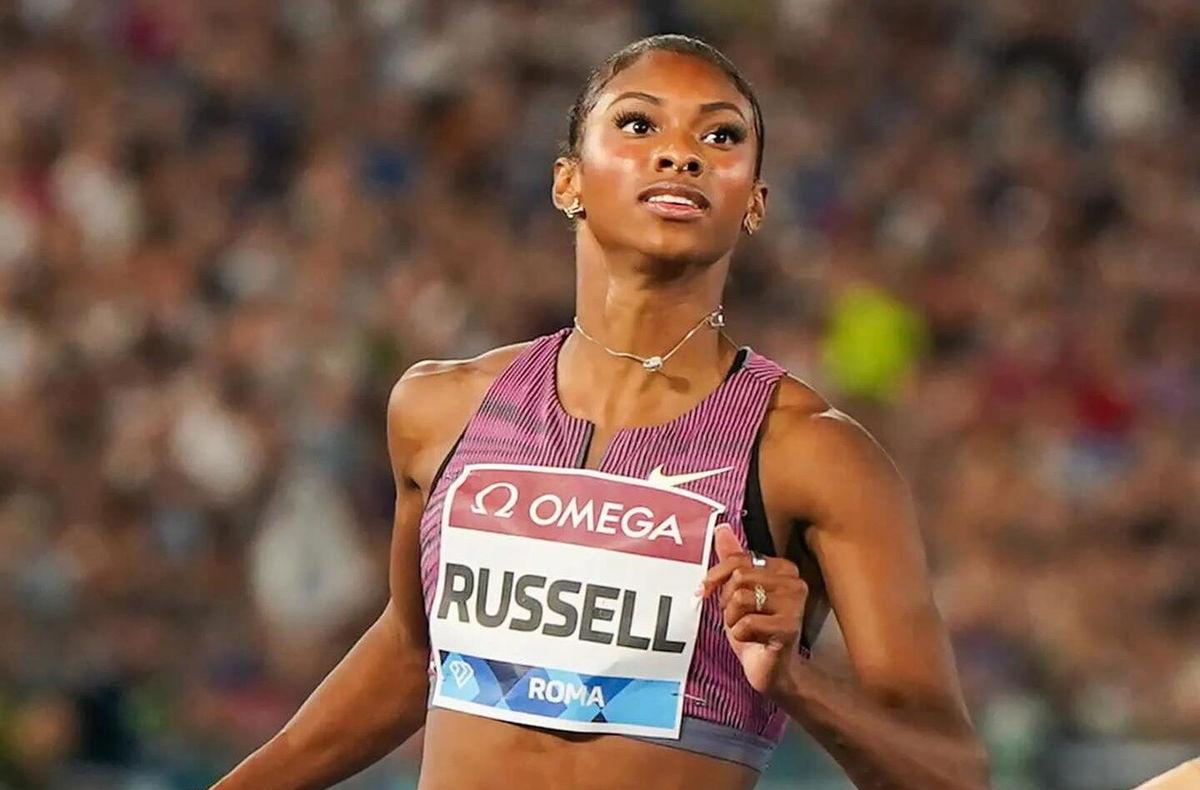
Imago
Credit: Instagram

Imago
Credit: Instagram
Masai Russell was never supposed to sit still. She has been known for her relentless presence on the track, never absent, never unprepared. When she shattered the American record in Miami with a startling 12.17 seconds in the 100-meter hurdles, it seemed she was only beginning to touch the edge of her potential. Then came an abrupt halt. What followed was not a scheduled break nor a tactical pause. But an immobile, frustrating silence. And for Russell, that silence hurt more than the injury itself.
Watch What’s Trending Now!
Her eventual return at the Prefontaine Classic, where she placed fourth in 12.50 seconds, marked more than a re-entry. It was a controlled reckoning with her own physical limits. “I’m blessed,” she said, not in a rehearsed way, but in the sharp clarity that comes from nearly losing something you thought you’d always have. In the days after her injury, Russell had searched for answers. Asking physiotherapists, coaches, peers. Why now? How did it happen? And more importantly, how could she ensure it would never repeat? These questions weren’t for consolation. They were for strategic purposes. She wasn’t interested in sympathy. She was already building a path back.
Until that moment, injury had been a foreign word in Russell’s career. “I’ve never missed a race,” she told ATHLOS with an unflinching tone. “I show up. Regardless of if I’m ready or not, I’m always going to show up, and that’s what, like, I feel like people know about me. So, you know, it was definitely different just sitting out, but my mindset was just like, I need to get back on the track.” But this time, she physically could not. In the days following her record-breaking run, Russell was confined. Unable to walk, unable to push off, unable even to rise on her toe. The diagnosis sidelined her for two months, leaving her no option but to watch from the sidelines as the season carried on without her. The irony cut deep. She had just crossed into historic territory, trailing only one woman in the all-time list, and yet she could not take a single step.
ADVERTISEMENT
Russell now points to Monaco as her next checkpoint. The Diamond League meet, expected to draw the world’s sharpest hurdlers, will serve as both a test and a statement. But her true focus lies just beyond that, at the American Olympic Trials. Her time away, however brief, has sharpened her intent. She knows the margins in this sport are ruthless. She knows there are others watching, calculating. But she also knows what she has endured, and what she is prepared to demand from herself. Her race at Prefontaine may not have topped the leaderboard, but in her mind, it marked the beginning of her second campaign.
One thing about @masai_russell: She’s gonna show up
And now she’s telling @sunisalee_ to show up at ATHLOS this October 👀
🎙️ @kxnaomi pic.twitter.com/2cYDf3oCkj
— ATHLOS (@athlos) July 6, 2025
With the Athlos Women’s Meet approaching in October and her public callout to Olympic gymnast Suni Lee to attend, Russell remains present, energetic, and unfazed. But there’s no mistake. Beneath the outward ease lies a competitor who has looked at stillness, disliked it thoroughly, and returned with an altered conviction. The ankle injury has receded. Her readiness has not. As the qualifiers approach, Russell appears less interested in spectacle than in precision. That, after all, is where the margin lives.
ADVERTISEMENT
How Masai Russell finds power in sisterhood beyond the podium
Masai Russell did not anticipate the sudden familiarity that would greet her after Paris. In the weeks that followed her Olympic triumph, she began to receive recognition from athletes whose careers she had long admired from a distance. It was not merely the acclaim that struck her, but the sincerity with which women like Coco Gauff and Suni Lee welcomed her into their circle. What emerged was a genuine camaraderie, one founded not on mutual fame, but on mutual regard.
ADVERTISEMENT

ADVERTISEMENT
“Last March, Suni was telling me she was watching my YouTube channel, watching my videos, and that she was following me on Instagram for a minute before I even knew,” Russell recalled, laughing at the memory. “And I’m like, ‘Wait, wait, wait. This is before I became an Olympic champion or anything.’” The connection surprised her, not because of Suni’s attention, but because it predated the medal. It was, in essence, a quiet affirmation of the work she had been doing all along, long before she stood atop the podium. And when Gauff, chosen to carry the U.S. flag at the Opening Ceremony, expressed her admiration, Russell was momentarily stunned. “I was like, ‘You know who I am?!’” she said, recalling Gauff’s simple response, “I’m a fan of you.”
Top Stories
Patrick Mahomes’ Dad Faces 10-Year Prison Sentence After Chiefs QB’s Father Reportedly Violated Probation Terms

Justin Jefferson Makes Final Decision on Joining Buffalo Bills After Further Damaging J.J. McCarthy Relationship
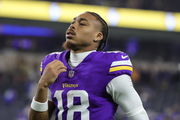
“Stay Right There on the Bench”: LSU’s Grace Knox Faces Backlash After Heated Moment in 64-77 Loss vs Texas
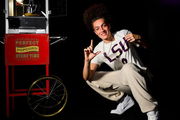
Prayers Pour In From Jordan Love & Co. as Cowboys Star Mourns Tragic Personal Loss
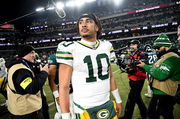
Multiple PGA Tour Pros Stopped from Playing as WM Phoenix Open Round Is Canceled Over Recurring Problem

PGA Tour Split Into Two as Scottie Scheffler Confirms Stance on Patrick Reed’s Return
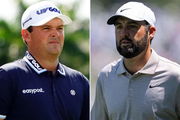
This recognition, however, did not lead Russell to seek celebrity. Rather, it reaffirmed her place among a cohort of women determined to lift one another as they advance. “It’s just so awesome that us women can do this for other women… and for all of sports.” And for Russell, the roots of that strength trace back to her mother, a pioneering oral surgeon who, as she said, “showed me work ethic and what determination means.” Masai Russell has indeed found both affirmation and purpose in the quiet strength of shared experience. And among champions, she has discovered not competition, but kinship.
ADVERTISEMENT
ADVERTISEMENT
ADVERTISEMENT